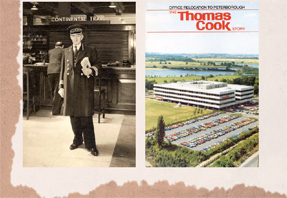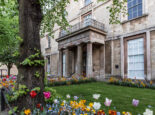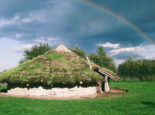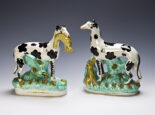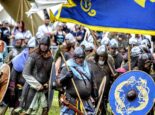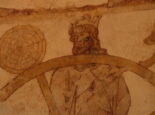Thomas Cook: from temperance to travel triumph
[prev] …packager of cheap travel into a fully-formed travel business offering bespoke packages to the wealthiest members of society.’ Now, believes Paul, Thomas Cook has come full circle and is once more the ‘Thomas-type business’ focussing on the mass market.
John was given carte blanche to expand internationally and pursue his ideals when Thomas retired in 1879, moving back to Leicestershire and passing away in 1892. The 1880s saw unprecedented growth for the firm as it moved into international postal deliveries (which would even continue during both world wars) and set up offices across the globe, as far afield as Australia and New Zealand. John developed the newspaper his father had started in 1851, The Excursionist, into the new international markets. Renamed The Traveller’s Gazette in 1902, this publication continued right the way through until 1939, when the war stopped it. On the subject of conflict, there was an extraordinary episode in 1884 when the company was asked to help rescue General Gordon and his troops from the infamous siege in Khartoum in Sudan. It’s a mark of how renowned the company now was for its expertise in overseas travel that the British government approached it to convey a relief force of 18,000 men and 40,000 tons of supplies 550 miles up the Nile. ‘By that time, we’d been operating in Egypt for about 15 years, so the knowledge we had of the Nile was second to none,’ explains Paul. ‘At that point we didn’t have our own fleet, although that followed soon afterwards.’
The Indian government had also engaged the firm to improve the arrangements for the thousands of Muslims making the annual journey from India to Mecca
Although the military operation ultimately failed, Thomas Cook and Son saw its own reputation enhanced because of how well it had done its job. ‘John was quite adamant that he had carried out his part of the contract to the hour that was agreed.’ Within a few years, the Indian government had also engaged the firm to improve the arrangements for the thousands of Muslims making the annual journey from India to Mecca, while it also conducted Indian royalty to London for the 1887 and 1897 jubilees of Queen Victoria. ‘It was hugely lucrative and we even set up a section, called the Indian princes department, on the back of those appointments.’ Thomas Cook and Son was also the official agent for the first modern Olympic games in Athens in 1896; in another nice example of the company coming a full circle, it had a similar role during the 2012 event in London.
The last of the Thomas Cook big steamers was built in 1921: that was the Sudan, which is still on the Nile today
An even bigger undertaking than the Khartoum expedition was when John was requested to arrange Kaiser Wilhelm II of Germany’s tour to the Holy Land in 1898. ‘What started out as something fairly small just grew and grew and grew. It became a massive operation involving hundreds of Germans and Turks, but it also had an entourage of media because it was a massive political thing.’ However, the accomplishment turned out to be a bittersweet one, for John caught dysentery while on the trip and died in early-1899, at the age of 65.
Edwardian innovation
John’s three sons, Frank Henry, Ernest Edward and Thomas Albert inherited the company and the innovation and expansion continued. ‘At its peak during the Edwardian era, there were as many as 50 vessels on the Nile, sailing under the Thomas Cook flag,’ says Paul. ‘The last of the big steamers was built in 1921: that was the Sudan, which is still on the Nile today, although we don’t own it anymore. We sold the last of the fleet in 1950, although for 25 years after that, we still retained our shipyard in the heart of Cairo. The vessels were built in Britain, but then shipped over in parts and reassembled by the yard.’ The firm also owned the funicular railway that went to the top of Mount Vesuvius in Italy, together with a connecting electrified line that opened in 1902. ‘Sadly, Vesuvius erupted in 1906, but we just dug it all out again and carried on.’ It was sold in 1945, the year after the volcano’s last major tantrum. Winter sports holidays, motorised tours and commercial air travel also became part of the travel scene. Thomas Cook was at the forefront of all of them, becoming the very first travel agent to advertise pleasure trips by air in 1919, for half-hour flights from Cricklewood in northwest London, and organising the first personally-conducted air tour from New York to Chicago eight years later… for a boxing match!
The two surviving brothers (Thomas Albert died in 1914) retired in 1928, two years after what was now Thomas Cook and Son Ltd had moved to Berkeley Street in Mayfair, the centre of high society in the West End of the capital. They unexpectedly sold out, for £3.5 million (around £120 million today) to the Belgian Compagnie International des Wagons-Lits et des Grands Express Europeens, the operator of the Orient Express. This ended the family involvement in the company, 87 years after their grandfather ran his first ever excursion. ‘Ernest moved to Bath where he set up home, which was by all accounts something of a museum,’ explains Paul. ‘He bought works of art, paintings, furniture and the odd country estate that was falling into disrepair. He died in 1955, but in 1952 set up the Ernest Cook Trust to manage seven of the estates that he’d bought. That still… [cont]



